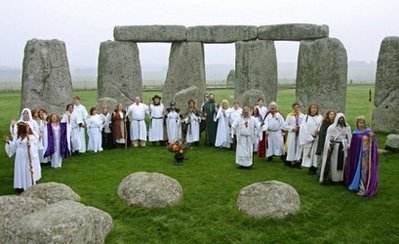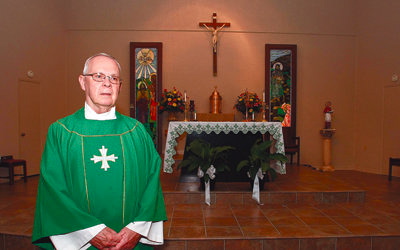
Just a couple weeks after the pope’s visit, the United Kingdom has decided to give legal recognition to a pagan religion:
The ancient pagan tradition of Druidry has been formally accepted as a religion under charity law in Britain — a decision its followers hailed Saturday as giving long-overdue recognition to the worship of spirits and the natural world.
The Druid Network, a group of about 350 Druids, will receive exemptions from taxes on donations after the semi-governmental Charity Commission granted it the status of a religion charity, just like mainstream religions such as the Church of England.
To register as a religious charity in England, an organization must satisfy requirements that include belief in a supreme entity, a degree of cohesion and seriousness, and a beneficial moral framework. After a process that took nearly five years the Charity Commission ruled that Druidry fit the bill.
“There is sufficient belief in a supreme being or entity to constitute a religion for the purposes of charity law,” the commission said.
Druids have practiced for thousands of years in Britain and in Celtic societies elsewhere in Europe.
They worship natural forces such as thunder and the sun, and spirits they believe arise from places such as mountains and rivers. They do not worship a single god or creator, but seek to cultivate a sacred relationship with the natural world.
Although they are best known as robed, mysterious people who gather every summer solstice at Stonehenge — which predates the Druids — believers say modern Druidry is chiefly concerned with helping practitioners connect with nature and themselves through rituals, dancing and singing at stone circles and other sites throughout the country believed to be “sacred.”
Phil Ryder, who chairs the Druid Network, welcomed the ruling and said it gave the spiritual tradition added validity.
“There were a lot of problems and we had to go into a lot of explanations … it was just a matter of them trying to understand it,” he said. “It will go a long way to make Druidry a lot more accessible.”
And let the interfaith dialogue begin.

